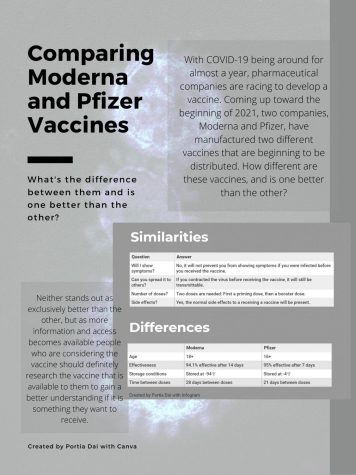Closing the Gap
A close look at gap years and their perception in American Society

Most high school students are used to hearing the question “What do you want to study in college?” This question can be quite daunting, especially for those who don’t have a definitive answer. It also leaves out the possibility of possibly not going to college, or at least not right away. A gap year refers to a break taken after graduation, usually for traveling or pursuing other interests, before going into higher education. It is a quite common concept in other countries, but, for some reason, is still considered somewhat taboo here in the United States.
When asked about his own experiences taking a gap year, former Oakton High School student Dylan Herbig points out how “many high schoolers do not even consider a gap year an option because they see it as wasted time.” He then continues, “at first, I was anxious to go, especially since the majority of my friends in the United States were going to college right after graduation.” Originally from Germany, Dylan draws attention to the fact that “a gap year [in Germany] is more common compared to the United States.” He also notes that a majority of his classmates from Germany are pursuing a gap year.
Gap years provide a great learning experience through travel and discovering new opportunities that can help someone grow and develop before going on to college or higher learning. It can also be helpful for students who are still not sure what they plan to study in college as it gives them an extra year to explore their own interests and discover how that can translate into a career.
On the other hand, the main reason that a majority of Americans reject the idea of a gap year is that it “wastes time” when kids could be in college straight out of high school. It is definitely ingrained in the American culture to hustle and keep working, so it makes sense why the idea of taking a year off before going to college can seem like a foreign concept to some. In fact, in a survey taken by Oakton High School in grades 9-12, 97% of students responded saying that they do plan to go to college immediately after high school and only 1 student, a freshman said they plan on taking a gap year. These results speak heavily on the pressures to go to college in the Oakton community and in Northern Virginia where there is a highly competitive atmosphere starting from a young age.
However, the notion that gap years do not provide the same type of enriching experience that college does is simply not true. Dylan “ended up going with [his] brother on a world tour where [they] visited 5 continents in 90 days. Both of [them] attained a better understanding of global issues such as climate change, while also becoming more independent by organizing, paying, and traveling without supervision/aid.” There are also several opportunities for internships, volunteering, and even jobs which can provide learning opportunities for students who do not wish to attend college right away.
Hi! I'm Shevany and I'm a senior at Oakton High School. This is my second year writing for the Oakton Outlook and I'm super excited to be an editor this...






